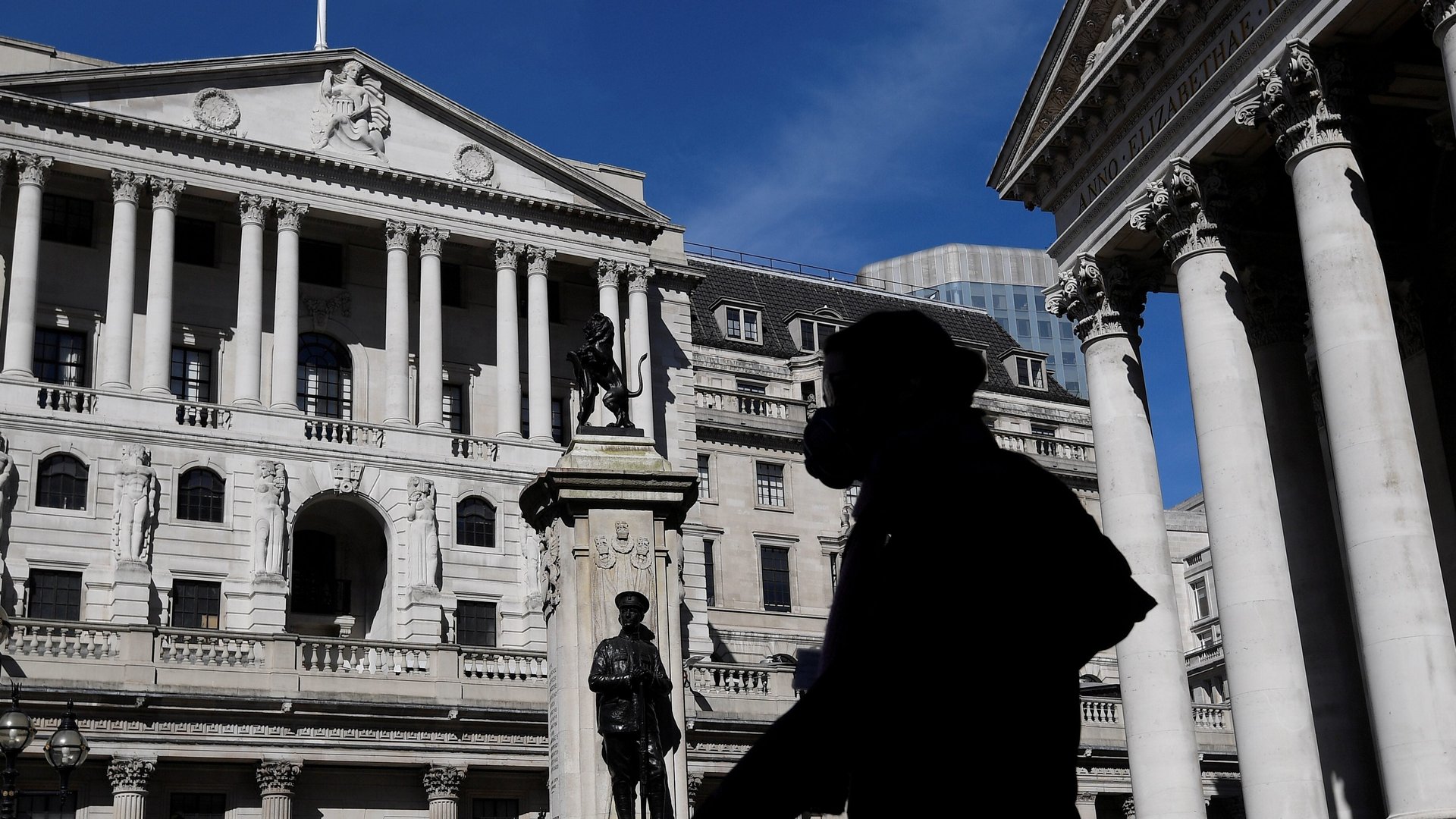The British government is borrowing directly from the Bank of England
The British government is dishing out a lot of money to support its economy during the coronavirus pandemic. To be able to spend such extraordinary amounts so quickly, the UK will start getting money directly from the Bank of England.


The British government is dishing out a lot of money to support its economy during the coronavirus pandemic. To be able to spend such extraordinary amounts so quickly, the UK will start getting money directly from the Bank of England.
Governments usually get their money from taxpayers and by borrowing from investors in the bond market. But officials are having to shovel out cash as fast as possible, to support workers losing their jobs as well as enterprises that are rapidly running out of money. By temporarily getting funding directly from its central bank, which has the power to print as much money as is needed, the UK can avoid overwhelming bond investors through a deluge of borrowing.
The UK Treasury will get the money from its account at the central bank called the Ways and Means facility, an overdraft account with a balance of £370 million ($460 million). The account became less important in 2000 when the UK’s Debt Management Office took over cash management, although the government tapped it for a short time in early 2009, driving the overdraft outstanding balance up to about £20 billion, in the aftermath of the financial crisis.
The BoE said the measures are meant to be short term and are designed to avoid causing unnecessary stress in credit markets. Bond markets will still be the UK’s primary source of financing, the central bank said, and the expenses from the government’s response to the Covid-19 crisis will be fully funded through additional borrowing.
The financing is “explicitly temporary in nature,” Andrew Mulliner, a bond portfolio manager at Janus Henderson Investors, wrote in an email. “The facility helps solve the intertemporal challenges of raising a lot of cash very quickly via a traditional debt management operation and a client base more used to a steady flow of bond issuance through a year.”
The extraordinary maneuver underscores the immense financial strain governments are coming under, as officials around the globe spend and lend trillions of dollars to bolster their economies amid the virus outbreak. The UK has spun up a series of programs to cushion the shock, but they come at a price: The country’s debt-to-GDP ratio will soar to 98% next year, up from 84.5%, according to Fitch Ratings, which cut Britain’s credit rating one notch last month to AA- (the top rating is AAA).
The news may invite comparisons to bouts of hyperinflation (pdf), which have accompanied large budget deficits financed by money printing after wars or revolutions. But sovereign bond and currency markets were unchanged after the BOE announcement, signaling little if any worry that the UK would rely on its printing press to pay for its response to the pandemic.
“In a world of fiat money, trust is key and so far investor faith in the institutional integrity of the system remains intact,” Mulliner said. “As bond investors, any move to a more permanent form of direct financing of the government would be a greater concern. This move from the Bank of England is not that.”